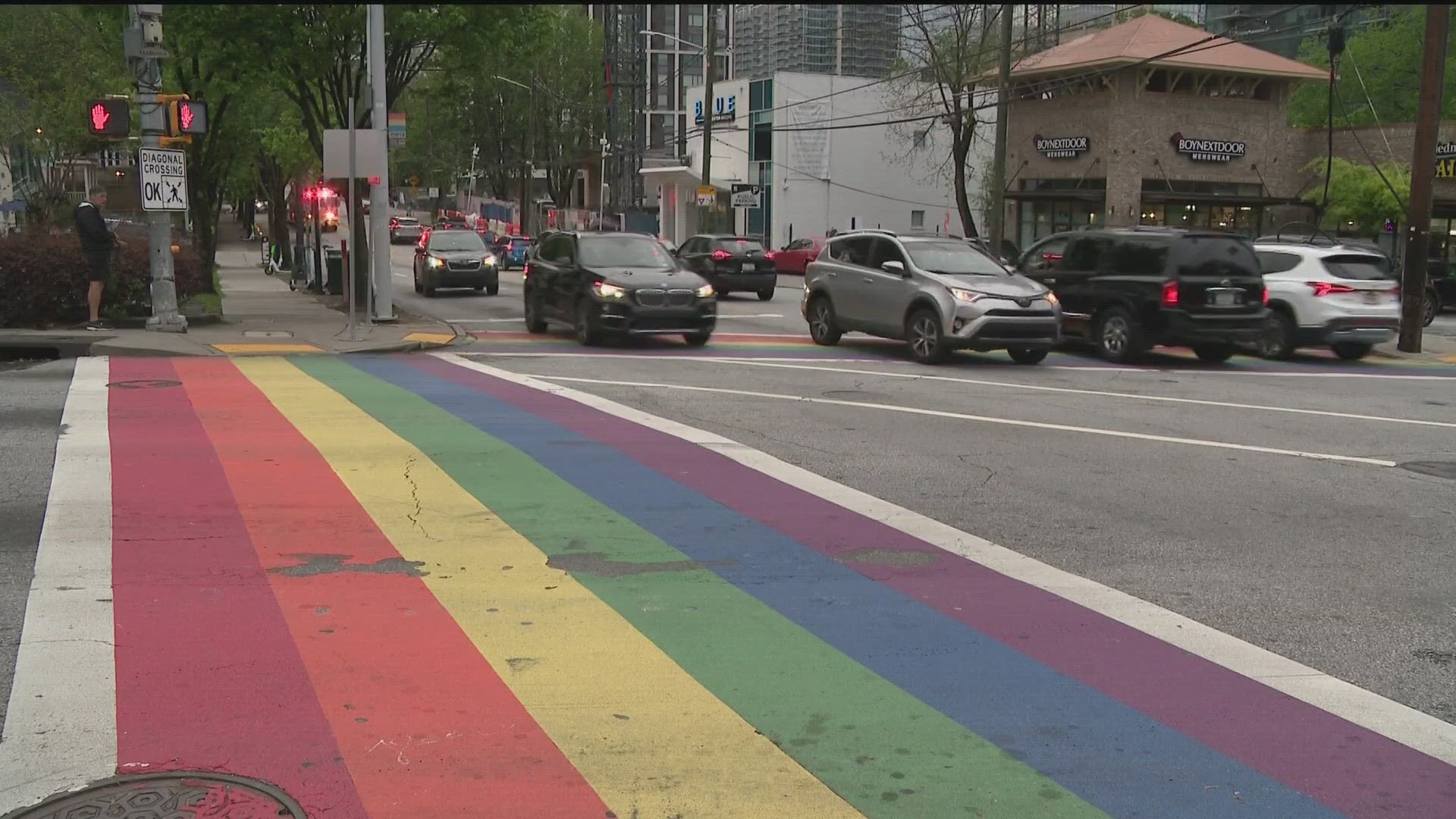ATLANTA — What does it mean to be a part of the LGBTQ+ community in the South?
A metro Atlanta-based university and institute released brand-new findings of the Southern Survey Thursday looking at education, healthcare and the workplace. The goal is to raise awareness and gain new knowledge about those who identify as LGBTQ+.
The LGBTQ Institute at the National Center for Civil and Human Rights, along with Emory University, organized the study of more than 1,300 people from the LGBTQ+ community in 14 southern states.
Midtown's Rainbow Crosswalks are one place celebrating the LGBTQ+ community, and the Southern Survey shows Atlanta ranks number one as the most welcoming place for the community.
“Atlanta emerged as part of an epicenter of LGBTQ progress and a space where people traveling around the South felt very safe," said Tim'm West, executive director of the LGBTQ Center.
“Most LGBTQ individuals find that their identity is positive in their lives and is important in their lives," Giacomo Negro said.
Emory University Goizueta School of Business professor Giacomo Negro said despite the positive identity, more than half of respondents reported experiencing some discrimination in their lives.
“A large share of the respondents also reported, for instance, having been rejected by their families or friends," Negro said.
Some major findings of the study include:
- 20% of all respondents and 25% of those who identify as transgender reported having skipped school to avoid discrimination.
- 75% of transgender respondents said they avoided talking about personal topics with coworkers or bosses.
- Nonbinary respondents were more than two times as likely than male or female-identified respondents to report avoiding health care.
West said the survey shows discrimination is worse among people of color.
“They're not only facing issues around sexual orientation and gender identity, but there's a wealth of other issues around poverty, around education, around implicit bias and racism," West said.
The study shows those who identify as LGBTQ+ are more willing to be involved in politics and in their communities.
You can read the full Southern Survey report by clicking here and the focus group finding by clicking here.

